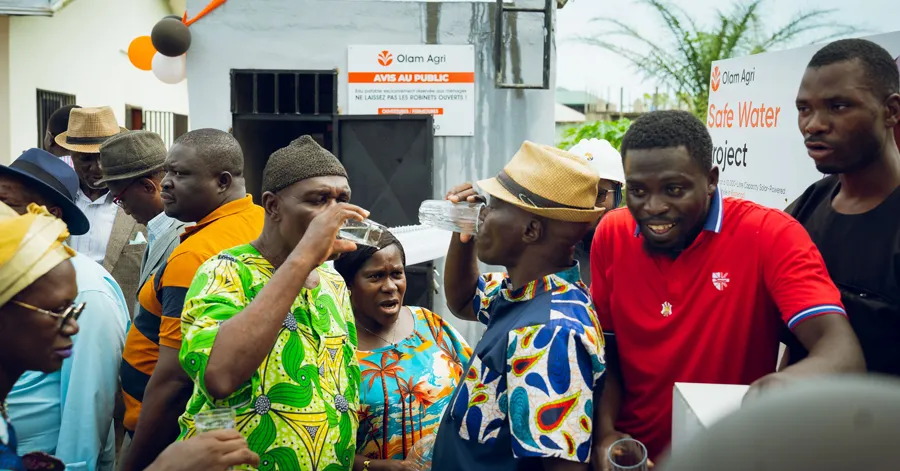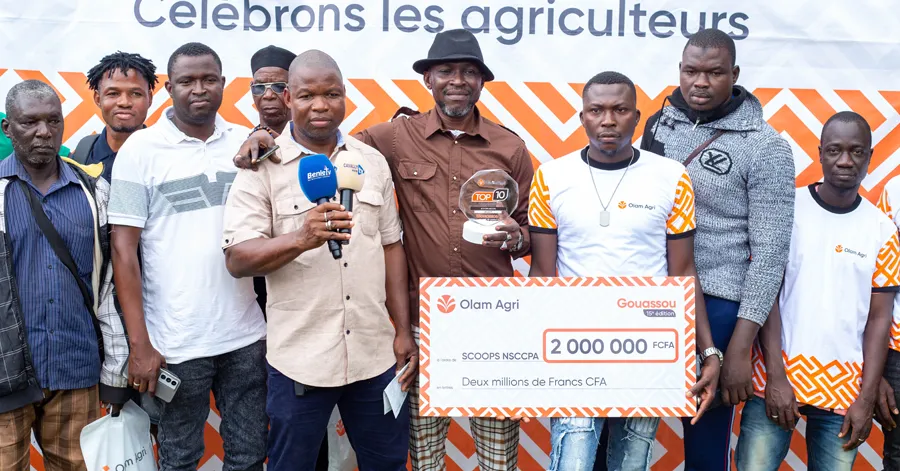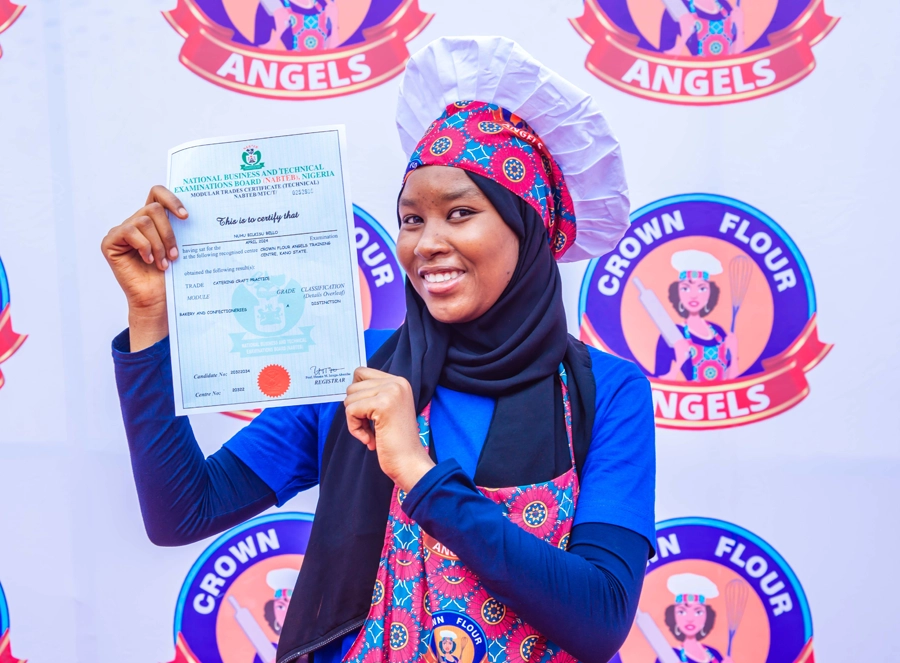Building a Business that Conserves Forests, One Step At a Time
“I have worked in the Congo basin for years, but nothing could have prepared me for the moment when I was just steps away from Buka, who belongs to one of the four groups of habituated silverback gorillas living in the vicinity of our forest concessions in the Congo Basin,” says Vincent Istace, Head of Corporate Responsibility & Sustainability at Congolaise Industrielle des Bois (CIB), an Olam Agri subsidiary.
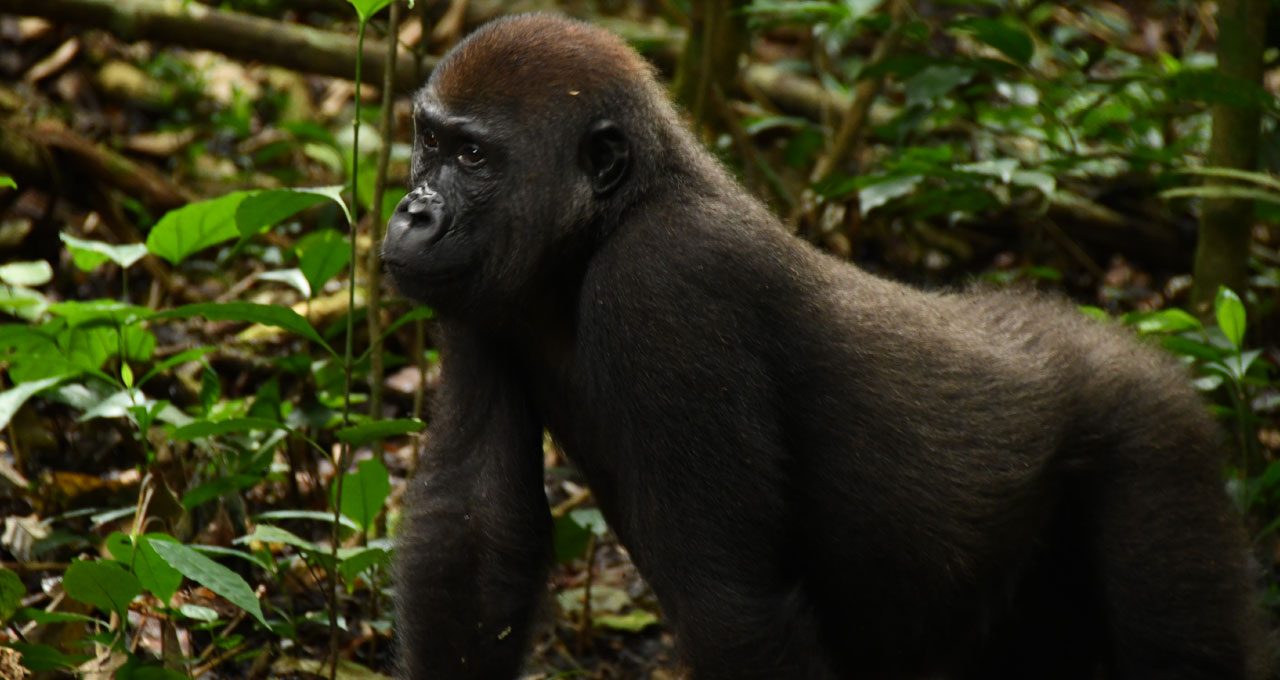

Personal pictures of Paki Paki taken by Vincent Istace in 2021. © Vincent Istace
“This landscape is ideal for wildlife viewing compared to other natural forests in the area. The forest is more open, making it easier to see and spot gorillas and other wildlife. This feature has made sites such as Mondika one of the world’s most interesting spots for the study of great apes.
It may surprise some to hear that critical gorilla and chimpanzee habitats around the buffer zones of Nouabale-Ndoki National Park, are also where sustainable timber harvesting is practiced.”
Forests are fundamental to our livelihoods, provide a critical barrier against climate change and are a vital natural resource. We sustainably and responsibly manage natural forest concessions covering over 2.1 million hectares in the Republic of the Congo. Our concessions are a source for 100% Forest Stewardship Council®* (FSC®) certified timber, and our wood products make their way to Europe and the rest of the world as a sustainable building material.
Our experience in the forests of the Congo Basin is the result of decades of unwavering commitment to ensure that business, people, and nature can co-exist and thrive. Here is what we’ve been doing to make this possible.
Pioneering sustainable forestry – with some help
The forests of Congo are home to rich biodiversity, the source of vital ecosystem services, a carbon sink – and a key source of livelihood for the thousands of people involved in our wood business.
Pioneering management measures across our concessions in Kabo, Pokola, Loundoungou-Toukoulaka and Mimbeli-Ibenga help ensure that we continue to protect the forests that we source from. These measures are developed in close consultation with all relevant.
Selective, low impact harvesting in our concessions helps preserve high-integrity forest areas and the biodiversity within them. We have a low harvest rate of less than one tree per hectare per year. We follow a rotation cycle of more than 25 years, meaning we go back to the selectively harvested area after more than 25 years.
Years of experience in the region have taught us the value of transparency and collaboration with NGO and research partners, which has contributed to the advancement of techniques for responsible harvesting, that now serve as models in other regions.
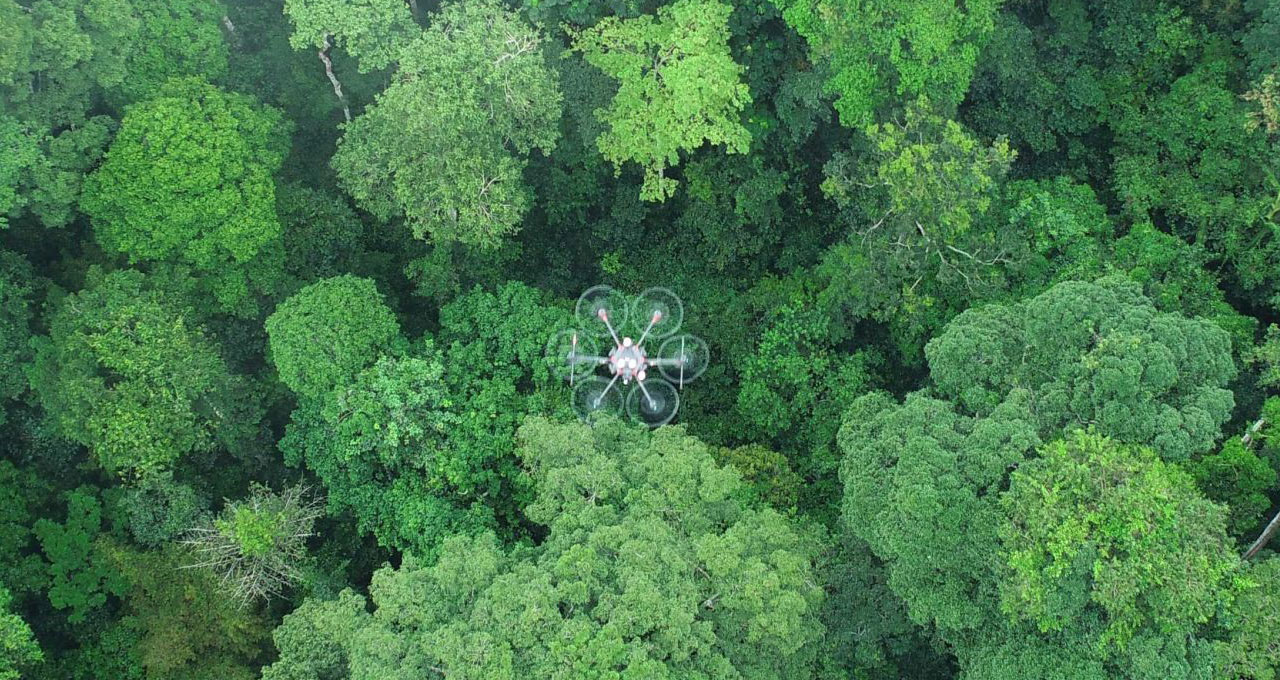

In a recent project, we worked with researchers from the University of Maryland (UMD) in the United States to collect drone-based optical and lidar data across our sites to monitor natural forest dynamic. © CIB
To protect a forest, it takes a village
From over 20 years working together, our partners have taught us that collaboration is vital for conservation.
Our range of partnerships with the local authorities, non-governmental organisations (NGOs) and academic research groups have brought science, policy and business together with the shared goal to protect Nouabale-Ndoki National Park (NNNP) for the long term. Indeed, the protection of an area, even a very large one, can only be effective if measures are put in place to ensure the co-existence of responsible economic activities and protection in its periphery.
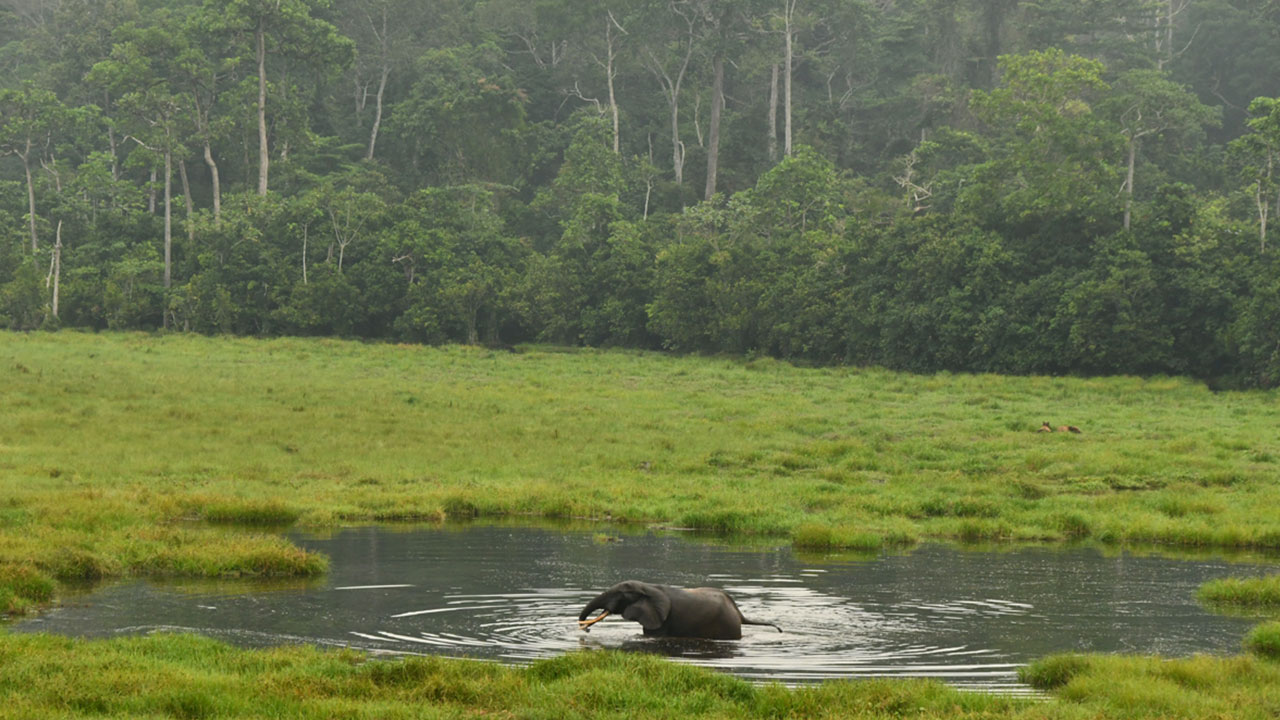

Nouabalé-Ndoki National Park is home to chimpanzees, elephants, and other primate species. © Vincent Istace.
To support scientific research, we work with various partners. Recently, we launched a new collaboration with Nature+, a non-profit organisation focused on sustainable management of African forest ecosystems, and Le Groupe Millet, a customer wishing to ensure the responsible origin of its supplies. This partnership develops research and awareness-raising on the dynamics of natural forest ecosystems.
For the past 20 years, an innovative tripartite agreement with the Wildlife Conservation Society (WCS) and the Congolese government has allowed communities, biodiversity – and business – to thrive side by side. This partnership has since provided ongoing support for the establishment of anti-poaching units. These ecoguards work tirelessly under the supervision of the state and in collaboration with local populations, patrolling several tens of thousands of kilometres per year to protect wildlife and local biodiversity. They removed more than 4,500 metal traps in our concessions in 2022 and released 86 animals seized alive.
The partnership has also helped identify and expand important forest areas for protection. In March 2023, we shared the expansion of the national park with the incorporation of the Djéké Triangle – a 9,500-hectare, ecologically important forest. Read more about the Djéké Triangle here.
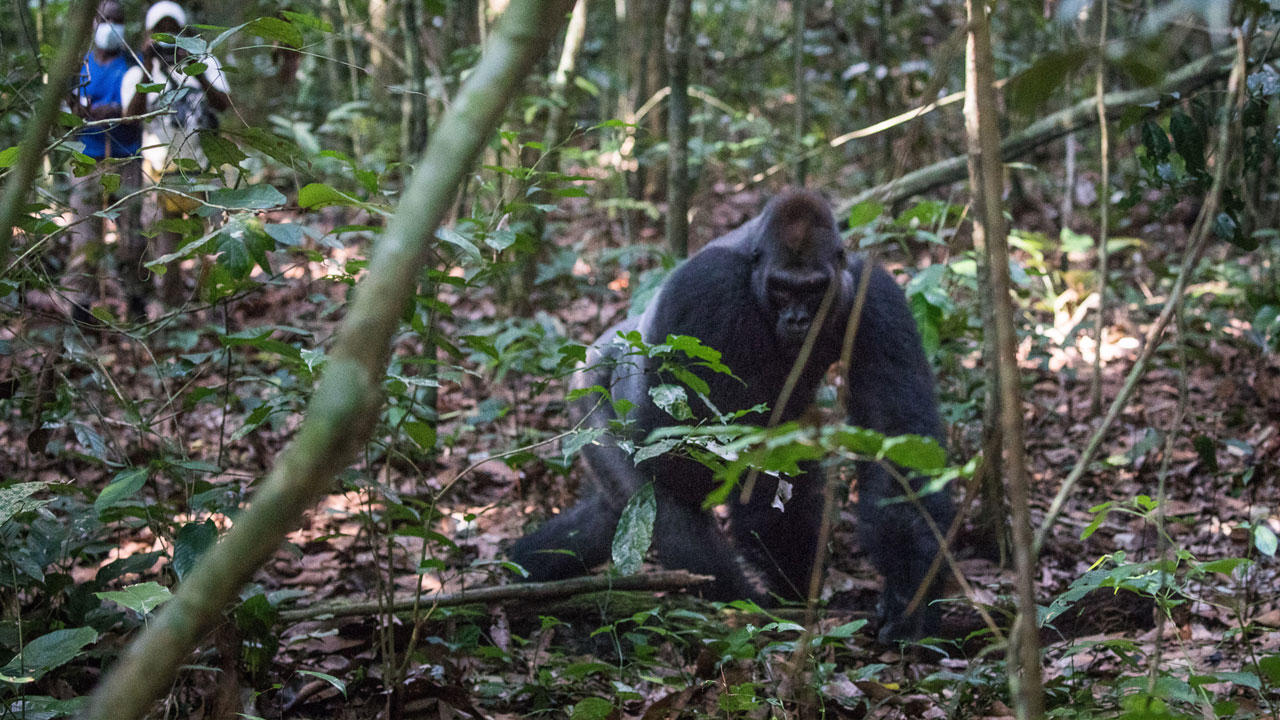

Kingo is estimated to be nearly 45 years old, with the vast majority of those years spent in contact with humans. He was the first silverback accustomed to human presence in Mondika and has become a legend. © S. Ramsay/WCS.
Going further with corporate responsibility
We have taken extra measures to reduce our environmental impact by exploring innovative and best-in-class wood processing technologies to minimise waste. Wood in various dimensions is used to make semi-finished and finished products, while improving local skills and production capabilities.
We also invest in technology to valorise wood waste for energy. Since 2014, the energy derived from wood waste has powered our factories, offices, and employee housing. Today, employees residing in 850 houses in Pokola enjoy free access to electricity.
What sets us apart is our openness to collaboration with partners. These partnerships have helped our approaches to forestry evolved over the past 20 years. Sharing experiences and learning from others contributes to improved management systems for forests around the world. Forest management is not just about timber, but also about the people who live there, the natural ecosystems that thrive there, and is a great source of innovation that should benefit everyone.
Vincent Istace -
Head of Corporate Responsibility & Sustainability at CIB
Supporting local communities and livelihoods
Local communities are vital to help us create a resilient business that lasts. By contributing to jobs creation and training, we ensure that our success is shared by the communities that we work with.
We’ve created and improved roads in support of the local government and partners. These roads have become a vital connector providing forest-dwelling local communities with access to new livelihoods and a better quality of life without resorting to poaching wildlife for the illegal trade.
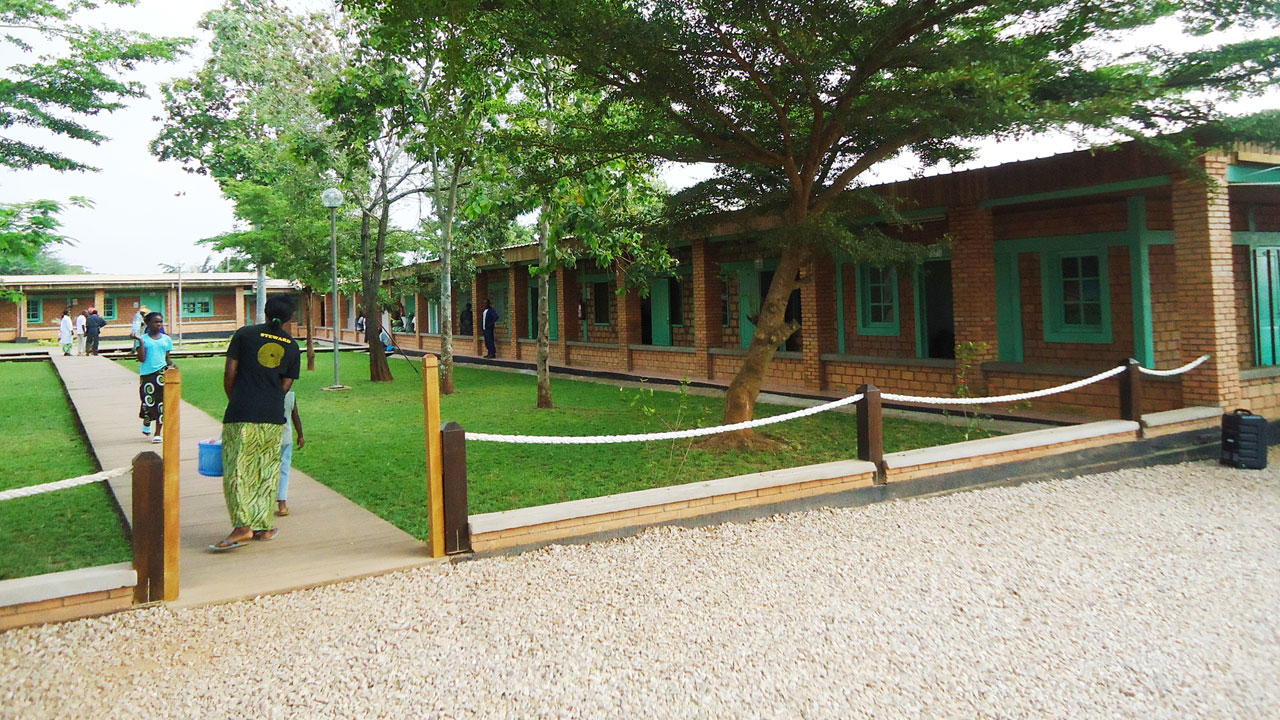

In Pokola, we fund and operate a 42-bed hospital and four rural clinics, offering local communities access to medical care, vaccinations and heath information. © Olam
Today, we support the health and well-being of over 60,000 people, including 25,000 indigenous people in our concessions. By creating value for the whole population, we are considering the full range of our impacts and anchoring our activities in the future.
We adopt a net positive approach and aim to put back more into food and farming systems than we take out. Find out more in our Living Landscapes Policy, which outlines our commitment to the creation and restoration of natural and social capital in Congo and places where we operate.
*FSC Certification Numbers: SGS-FM/COC-004705 / SGS-FM/COC-010641 / SGS-FM/COC-008483 / SGS-FM/COC-011928 / SGSCH-COC-002697 / SGSCH-PRO-600038.


